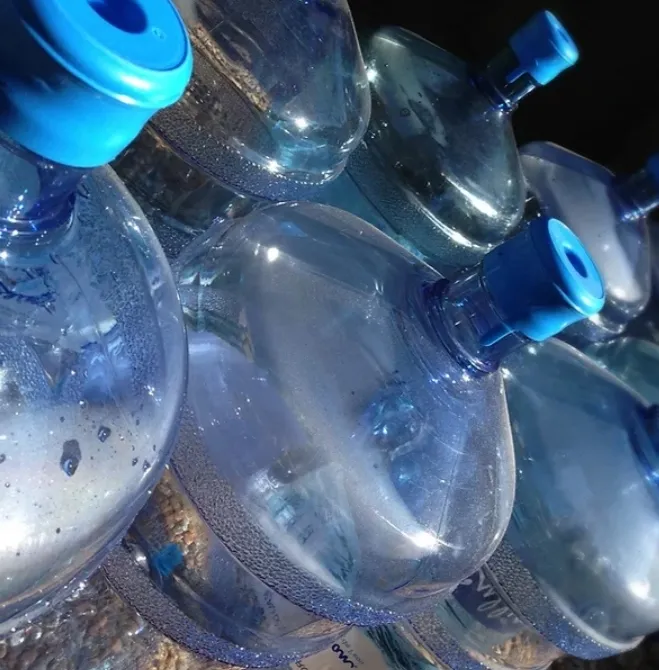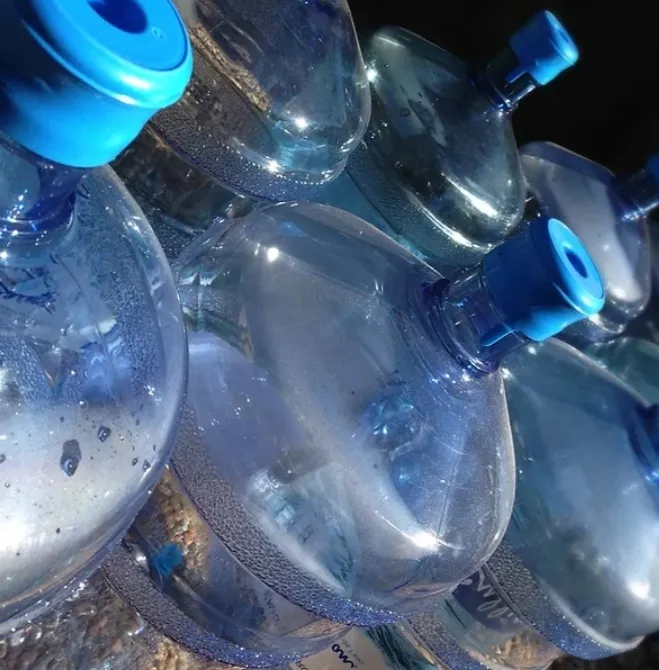Water and other beverages - nutrition
The composition of the human organism corresponds to 60% water, a percentage distributed in the different organ systems, but being higher in the blood vessels and lower in bone.

The metabolic activity inherent to the organism produces by itself a certain amount of water, but it does not constitute enough to counteract the losses in urine, sweat and feces. Regular consumption of water is the only way to replenish and meet the body's requirements. Thirst is a symptom of dehydration, therefore it is advisable not to wait to be thirsty as a guideline for action, but to drink water frequently.
Role of water in the body:
The role of water as a regulator of body temperature are manifested in two ways:
- Own high temperature, water is able to absorb and provide a large amount of heat without changing body temperature.
- When body temperature is exceeded, evaporation of sweat on the skin surface effectively removes excess heat, avoiding the risk of overheating.
- It is a carrier of nutrients and substances necessary for cell survival.
- It is the medium used to evacuate waste products.
- All chemical reactions occurring in the body take place in the water portion of the body.
- It lubricates and provides a structural base for tissues and joints.
- It collaborates with the supply of nutrients, since a number of them are dissolved in water.
Balance between water intake and water loss in the body.
The main sources of water supply:
- The main source of obtaining is the consumption of liquids, whether tap water or other beverages.
- A valid dose of water can be acquired through the consumption of solid foods, such as fruits, vegetables and green leafy vegetables.
- Water is also a result of some metabolic processes.
Causes of dehydration:
- Water drainage through urine and feces.
- Evaporative losses, i.e. through the skin and through respiration, these losses can be enhanced by the following factors.
- Escalation of the environmental temperature.
- From having medical conditions such as stomach upset, infection, fever or kidney disorder.
Regulatory factors:
- For adequate hydration there must be a balance between water intake and water loss. The kidneys regulate water loss, which helps maintain normalized levels.
- The hormonal system and nerve signals act together to give off the sensation of thirst that occurs when the amount of water begins to decrease, and when the bladder is full we experience the urge to urinate.
- To report sufficient water in the body, it is recommended to drink about 2.9 liters of water per day for men and 2.2 liters for women with low physical performance.
- Drinking a lot of water does not cause physiological disorders in healthy people, since it is easy to get rid of the excess. On the contrary, when the body loses more water than it takes in, dehydration occurs, which has serious consequences and can lead to death.
Situations in which it is necessary to ensure the supply of fluids to the body:
- In case of vomiting or diarrhea.
- When bleeding and burns occur.
- If you have an infection, fever, kidney problems and are taking diuretics.
- Throughout pregnancy and especially during breastfeeding, a period in which you should consume about 750 ml of fluid per day, which is more than the usual amount.
- Children often avoid drinking water because they are diverted from the activity they are doing, so adults should take care to adequately replenish children's water.
- Special attention should be paid to fluid intake in the elderly. As you age, your kidney function and thirst will change, and you may also need extra fluids in connection with the medications you take. Regular water intake should be insisted upon even if you do not feel thirsty.
Recommendations for good hydration:
- Start your day hydrating, a glass of water is best, but juices and milk are valid because of their water content.
- Do not wait until you are thirsty to drink water. During the evening hours you have probably lost fluid through evaporation or drooling. Try to regain freshness.
- Do not link fluid intake to specific times of the day, such as snacks or meals, drink water regularly.
- During the winter, it is vital to maintain the habit of regular hydration.
- While we are physically active, we should increase fluid intake to compensate for losses.
- Always carry bottles of fluid with you on trips to keep your body hydrated at the rate it needs.
The role of other beverages in the diet.
Juice and nectar supply to the body:- They positively intervene in the hydration of the organism, act as a healthy liquid of palatable consumption.
- They provide many of the vitamins, minerals and fiber found in fruits and vegetables. While it is true that the doses of these nutrients are lower than in natural fruits or vegetables that are ingredients, it opens an opportunity to consume less concentrated but more curious mixtures.
- If sugar is added, it becomes a contribution of kilocalories.
- Roughly speaking, juices and nectars have a positive impact on the organism. But it is valid to insist on how it is healthier to consume water, fruit and vegetables directly.
Effect of the Consumption of Industrial Soft Drinks:- Despite the fact that it increases energy and water levels in the organism, it is so harmful that its use is recommended for these purposes, except in very specific circumstances.
- It does not provide nutrients, it is just empty calories.
- Due to the presence of caffeine, simple sugars and other chemicals that increase cravings for sweets, they are addictive.
- Increases the risk of obesity, cardiovascular disease and type 2 diabetes.
- Potentiation of tooth enamel loss and the appearance of cavities because it contains large amounts of sugar and acids.
- Sleep disorders if it contains caffeine.
- Regular consumption can lead to gastritis and osteoporosis.
Contributions and damages of alcoholic beverages to the organism
Inputs:
- Energy reserve for the organism obtained from the alcoholic content, and thanks to the sugar content of some alcoholic beverages, anices and liquors.
- Beer has incorporated in its composition some nutrients, such as carbohydrates, vitamins B12, B2 and folic acid.
Damage:
- Gradual decrease until disappearance of reflexes, euphorias, and particularly moods or intellectual capacities.
- Drinking in moderation causes loss of reflexes, agitation and inhibition.
Consequences of increased alcohol consumption:
- Severe gastrointestinal and neurological diseases, added certain types of cancer.
- Increased mortality rate in people who drink alcohol regularly from other causes, such as automobile accidents.
- It has a negative impact on the individual, family and social sphere of the alcoholic.
Alcohol and health: While on the one hand there is alcoholism, on the other hand it is known that drinking in moderation can result in positive consequences for the body. We must be careful and responsible, drinking alcohol only in the recommended amount and frequency. Regularization is the key to avoid dependence or psychiatric illnesses.
Some benefits associated with wine
Some of the benefits associated with drinking wine:
- Wine acts on insulin production, improves glucose metabolism and therefore reduces the risk of developing type 2 diabetes.
- Because it contains anthocyanins, it is granted antioxidant properties.
- Anti-tumor and anti-inflammatory properties.
- Optimizes the sense of sight.
- Decreases the potential for coronary heart disease.
Want to learn more about holistic nutrition?

